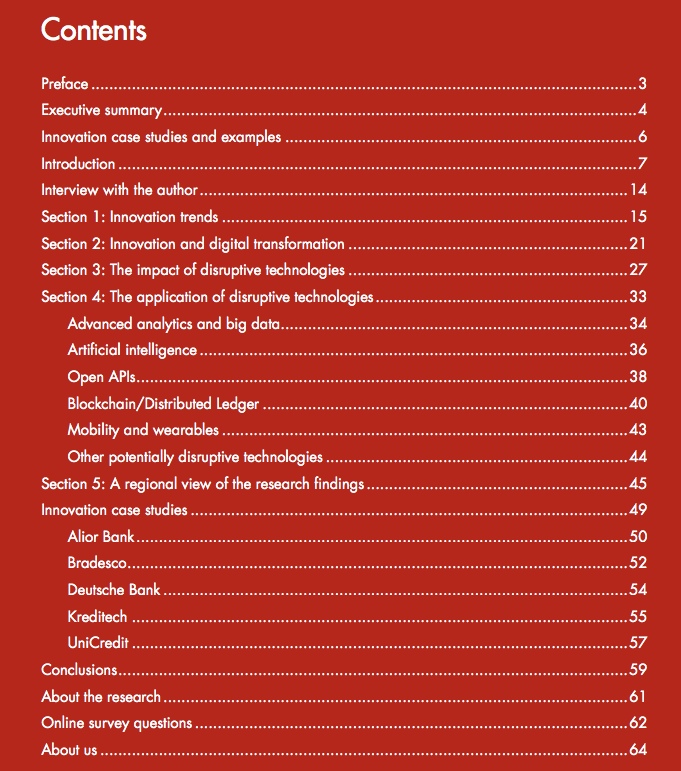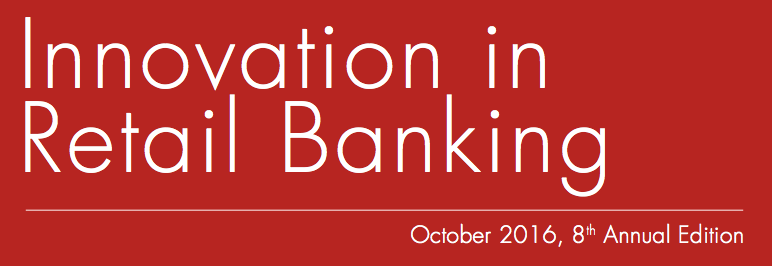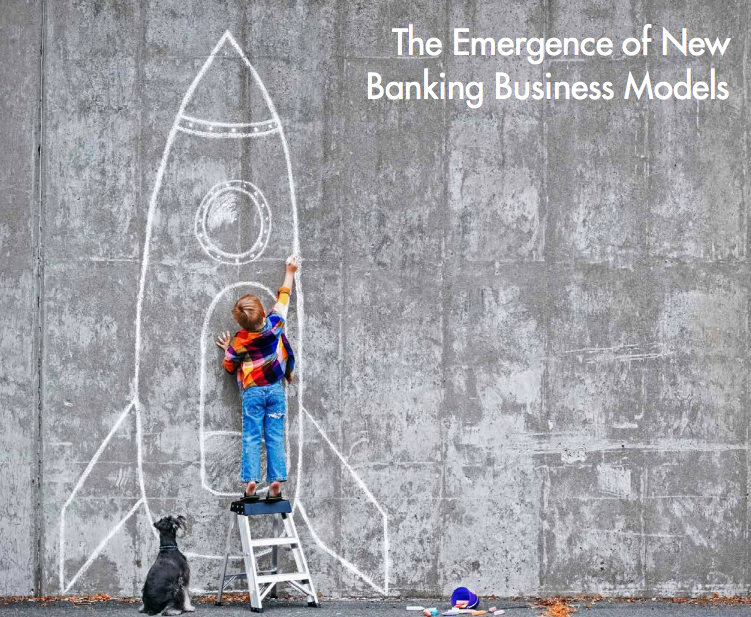Changing consumer preferences, evolving technology, and the rise of the fintech start-up globally is challenging the fundamental way that business models have traditionally worked in the financial services industry. The 8th edition of Infosys Finacle – Efma ‘Innovation in retail banking’ research report 2016 throws some light onto these new business models that are slowly but surely emerging in banking. The trend from last year’s Infosys Finacle – Efma report, wherein banks viewed start-ups as a possible threat, is still continuing and 77% banks regard the threat from at least one group of potential competitors as high or very high. These potential competitors range from tech companies, start-ups, and retailers to insurers and telcos.
However, established financial institutions are now seeing the possible benefits of viewing these competitors less as rivals and more as innovation partners. The Infosys Finacle – Efma research report 2016 showcases how the perceptions amongst banks are changing and about 73% of the banks that took part in the survey maintain that working with innovative start-ups is the best approach to get access to disruptive technologies. When you compare this to the 46% of banks that want to invest in internal research and development, it is evident that times are changing and collaboration is the way forward for most of the banks.
Financial institutions are embracing the digital transformation that is spearheaded by newer competitors and radical changes in customer behavior. For 70% of all the banks participating in the Infosys Finacle – Efma survey, the biggest priorities in digital transformation are creating a customer-centric organization and providing an Omni Channel digital experience to their customers.
However, for 50% of the banks, the biggest barrier to digital transformation is the legacy system environment that they work in. To overcome the challenges associated with legacy systems and the lack of agility, a few banks (20%) are moving towards the “digital-only” route. For the banks that launch a digital only version, over 80% of these banks want to provide different services and products, leverage new channel applications, and back office technology and processes as compared to the core bank. A good example of this digital only strategy is DBS Bank, which has launched a digital only bank in India, that is outside its core retail banking market of brick and mortar branches in Singapore and other Asian countries. Hence, this becomes a low-cost and flexible market entry strategy for DBS.
A lot of banks are moving beyond digital transformation, and are looking at a series of technologies as potential causes of disruption in the current banking business models. Most banks (about 60%) perceive advanced analytics & big data, and open APIs will have the biggest impact on business models and close to 70% of the banks believe that this impact will be visible in the next couple of years.
Today, banks have the choice of several advanced analytics applications for converting the data at their disposal into actionable insights. Analytics will drive outcomes across customer experience, revenue expansion, operations optimization and fraud & risk management. This will be key for competitive advantage in the digital era.
With regulations such as PSDII coming into effect in the EU, and the digitization of the ecosystem, such as digital India Initiative, banks have had to open up their APIs to other service providers in the ecosystem. Customer experience is more important now than ever in this open market and banks are starting to understand that they have to provide the best in class experience to their customers with the least time to market.

Blockchain/distributed ledger is a disruptive technology that is slowly coming into its own, and about 20% banks from the Infosys Finacle – Efma survey feel that blockchain will have an impact as a disruptive technology in the next couple of years; about 40% of the banks still feel that blockchain will have an impact in the next three to four years. Some banks have embraced blockchain as a key differentiator in the industry and are developing use cases for blockchain in the areas of remittances and inter-entity payments, trade finance, supply chain finance, digital identity management, smart contracts, document security, collateral management, syndication of loans and treasury functions. These use cases will help in positioning blockchain as a potential disruptor in a wide variety of business processes.
Today, banks need to be agile to keep pace with consumer expectations and the technology advancements in the mobility space. In order to appeal to the connected consumer, it will be key that banks leverage the advancements in mobility to provide differentiated customer experience. Some of these include speech based payments, biometric authentication, paperless onboarding and mobile remote deposit capture.
It is evident that banking as an industry is at a turning point with a multitude of disruptive technologies changing the way business is done. Customers are also more digitally savvy and are looking for experiences that delight them. For banks, making the right investment decisions, is of utmost importance to get ahead in this open market ecosystem. If they don’t look at embracing the change that is afoot, banks are going to lose out to the early technology adopters.

